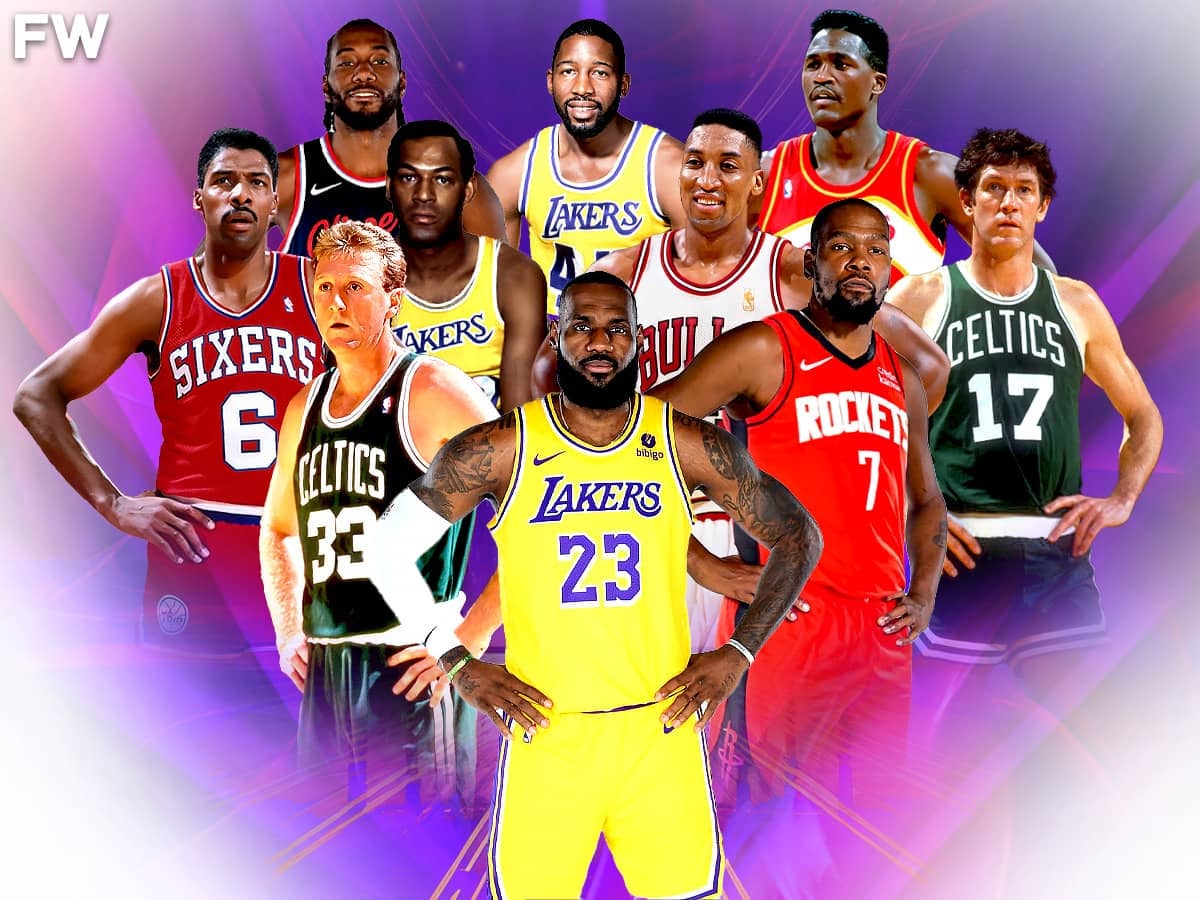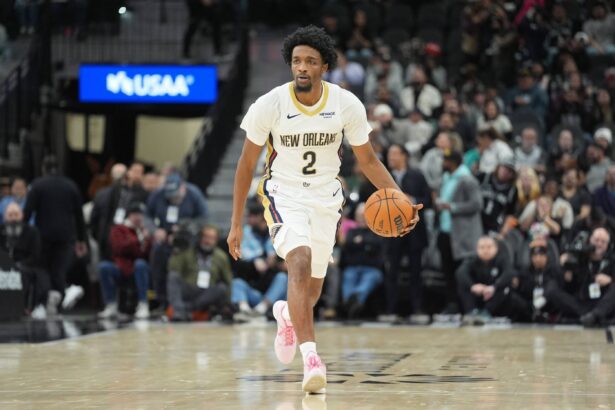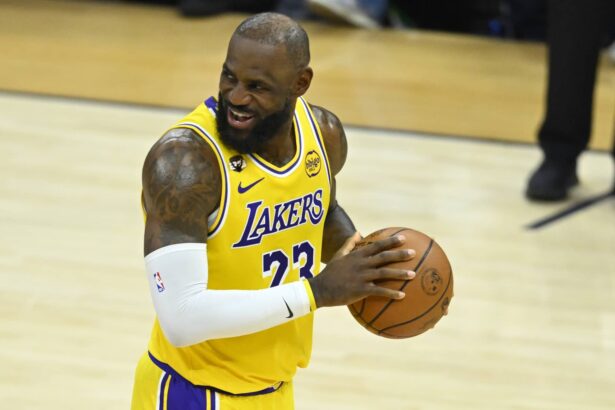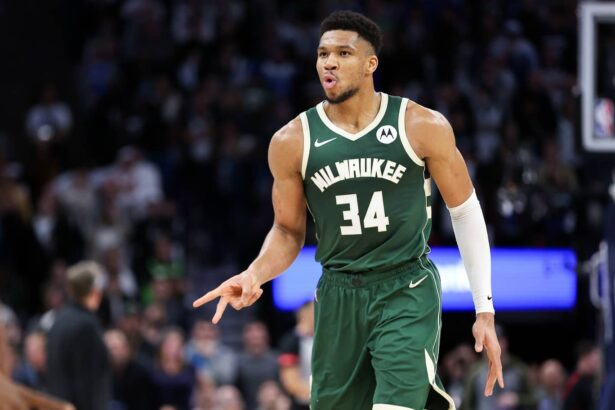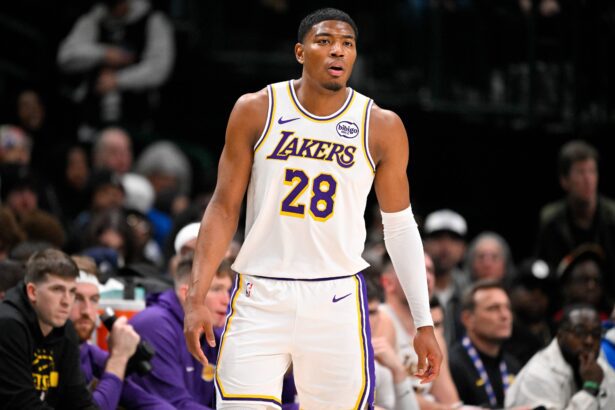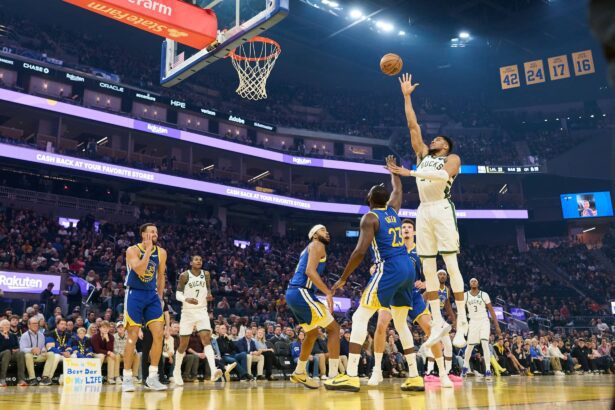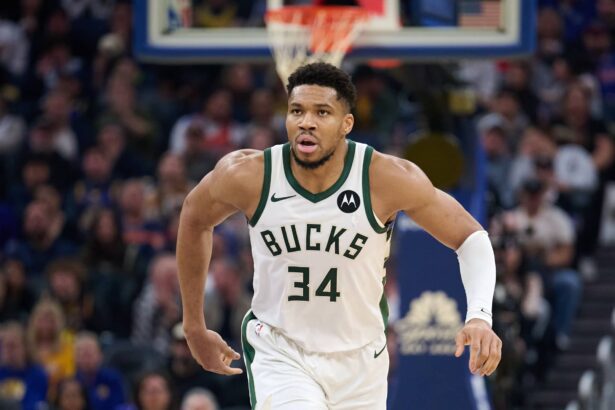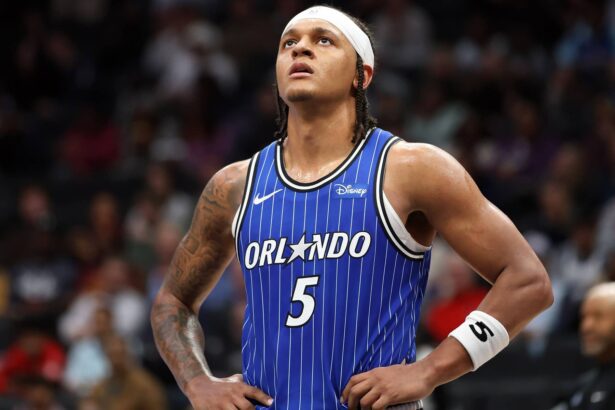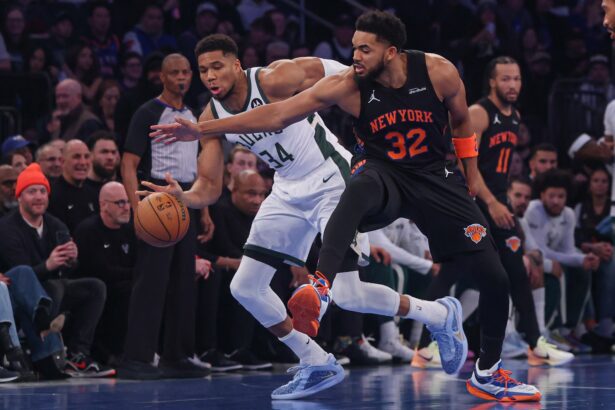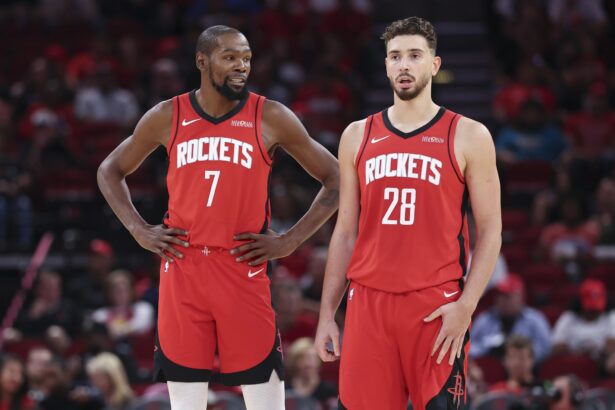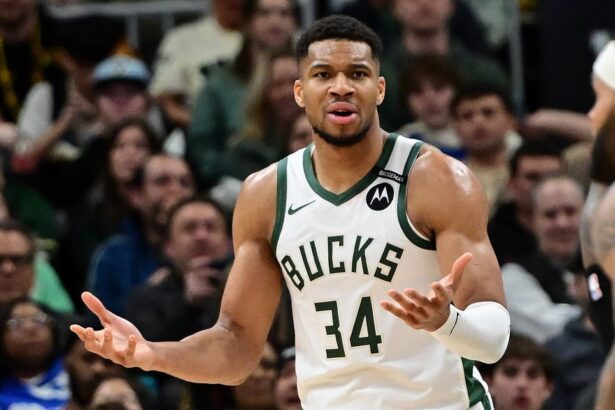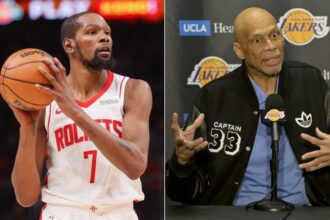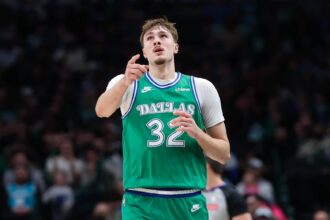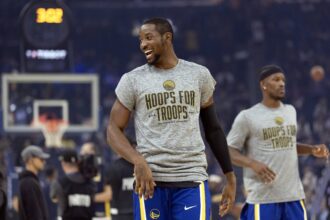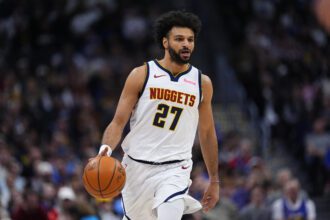Small forwards have always been the glue men, game-changers, and mismatch-builders. After spotlighting the floor generals and guards who set the pace and took the shots, we turn to the wings: arguably the most important pieces of the modern era.
- 25. Jaylen Brown
- 24. Paul George
- 23. Jimmy Butler
- 22. Jayson Tatum
- 21. Billy Cunningham
- 20. Dave DeBusschere
- 19. Chris Mullin
- 18. Bernard King
- 17. Adrian Dantley
- 16. Grant Hill
- 15. Alex English
- 14. Carmelo Anthony
- 13. Paul Arizin
- 12. Paul Pierce
- 11. Rick Barry
- 10. Dominique Wilkins
- 9. James Worthy
- 8. Kawhi Leonard
- 7. John Havlicek
- 6. Scottie Pippen
- 5. Elgin Baylor
- 4. Julius Erving
- 3. Kevin Durant
- 2. Larry Bird
- 1. LeBron James
From LeBron James, who defies traditional labels with MVPs, championship hardware, and dominance in points, rebounds, and assists, to icons like Larry Bird, Julius Erving, Kevin Durant, and Scottie Pippen, small forwards have consistently scratched the box score on both ends and redefined versatility. Let’s provide the 25 greatest small forwards of all time.
25. Jaylen Brown
Career Stats: 19.0 PPG, 5.3 RPG, 2.6 APG, 1.0 SPG, 0.4 BPG
Career Accolades: 2023-24 NBA Champion, 2023-24 Finals MVP, 4x All-Star, 2022-23 All-NBA Team Selection
At just 28 years old and already an NBA champion and 2024 Finals MVP, Jaylen Brown offers a modern archetype for what the position can be: high-end scoring, rugged defense, leadership, and an unexpected intellectual edge. Over nine seasons, he’s averaged 19.0 PPG, 5.3 RPG, 2.6 APG, 1.0 SPG, and 0.4 BPG through 603 games with the Boston Celtics, earning four All-Star selections and a 2022-23 All-NBA team nod.
But Brown’s story goes beyond the numbers. He played through a painful knee injury during the 2025 playoffs, averaging 23 points per game and carrying Boston through early rounds. His Finals MVP run, averaging 20.8 PPG, 5.4 RPG, and 5.0 APG, helped break a long title drought for the Celtics and proved critics wrong who had labeled him “just” Tatum’s sidekick.
24. Paul George
Career Stats: 20.6 PPG, 6.3 RPG, 3.7 APG, 1.7 SPG, 0.4 BPG
Career Accolades: 9x All-Star, 6x All-NBA Team Selection, 4x All-Defensive Team Selection, 2012-13 Most Improved Player, 2018-19 Steals Champion
Paul George has been a model of perimeter two-way excellence: averaging around 20.6 PPG, 6.3 RPG, 3.7 APG, 1.7 SPG, and 0.4 BPG across a career peppered with nine All-Star appearances, six All-NBA selections, and four All-Defensive nods. Known as the 2012-13 Most Improved Player and 2018-19 steals champion, George emerged as a two-way disruptor and offensive anchor wherever he went, from the Indiana Pacers to the OKC Thunder to the LA Clippers.
What separates George is his chase-down defense and elite ball control under pressure. He’s the rare wing you’d trust with the final possession at either end. Despite missing a chunk of prime due to injury and while championships have remained elusive, his star-level consistency and two-way impact make him worthy of recognition just outside the top 20.
23. Jimmy Butler
Career Stats: 18.3 PPG, 5.3 RPG, 4.3 APG, 1.6 SPG, 0.4 BPG
Career Accolades: 6x All-Star, 5x All-NBA Team Selection, 5x All-Defensive Team Selection, 2014-15 Most Improved Player, 2020-21 Steals Champion
Jimmy Butler is peak competitiveness incarnate: top-level scorer, stout defender, and all-around leader. Over his career, he’s averaged 18.3 PPG, 5.3 RPG, 4.3 APG, 1.6 SPG, and 0.4 BPG, earning six All-Star selections, five All-NBA selections, and five All-Defensive Team honors. Named 2014-15 Most Improved Player and NBA steals leader in 2021, Butler is as tough defensively as he is crafty offensively.
His aura is real. Playoff Jimmy elevates teams like the 2023 and 2020 Miami Heat, carrying them farther than many expected – to the NBA Finals each time. Butler’s playoff DNA is unmatched: he consistently punches above perceived ceiling. His relentless demeanor, slick midrange game, and elite anchoring are why he sits here, just a few spots shy of legendary wings.
22. Jayson Tatum
Career Stats: 23.6 PPG, 7.3 RPG, 3.8 APG, 1.1 SPG, 0.7 BPG
Career Accolades: 2023-24 NBA Champion, 6x All-Star, 5x All-NBA Team Selection
Jayson Tatum emerged as the next face of Boston’s franchise, leading the Celtics to the 2024 championship when nobody thought it would be possible for him coming into the league. Over his career so far, he has posted 23.6 PPG, 7.3 RPG, 3.8 APG, 1.1 SPG, and 0.7 BPG, and has earned six All-Star nods and five All-NBA selections.
Tatum regularly shatters Celtics playoff records, including most points in a Game 7 (51 points), and delivers elite shot creation from all levels. His silky scoring, positional length, and ice-cold demeanor make him one of the most complete wings in the modern game. On any other franchise, he’d already be the marquee name; here, he forms a co-pillar with Brown, collectively validating Boston’s modern blueprint.
21. Billy Cunningham
Career Stats: 21.2 PPG, 10.4 RPG, 4.3 APG, 1.8 SPG, 0.6 BPG
Career Accolades: 1966-67 NBA Champion, 1972-73 MVP, 5x All-Star, 4x All-NBA Team Selection, Hall of Fame
Billy Cunningham helped lift the legendary 1967 Sixers to a championship and later earned ABA MVP honors during a dominant stint with the Carolina Cougars. Standing out as an early small forward who could rebound (over 10 RPG), score (21.2 PPG), and facilitate (4.3 APG), he earned five All-Star nods and four All-NBA selections while eventually capturing the league MVP in 1973.
As one of the first small forwards to morph into a primary playmaker on that 1960s Sixers roster, Cunningham’s play foreshadowed the positionless forward era. His combination of scoring, rebounding dominance, and transition play, plus his Hall-of-Fame impact, secures him a legacy as a prototype for the modern, multi-dimensional wing.
20. Dave DeBusschere
Career Stats: 16.1 PPG, 11.0 RPG, 2.9 APG, 0.9 SPG, 0.5 BPG
Career Accolades: 2x NBA Champion, 8x All-Star, 1968-69 All-NBA Team Selection, 6x All-Defensive Team Selection, Hall of Fame
Dave DeBusschere stood out as a physical enforcer on the wing, pulling down rebounds, guarding multiple positions, and averaging 16.1 PPG with 11 RPG in an era where small forwards rarely hit double-digit boards. A two-time champion with the Knicks and six-time All-Defensive first team honoree, he helped cement New York’s identity in the late ’60s and early ’70s.
With eight All-Star nods and placements on All-NBA teams, DeBusschere showed that leadership and grit matter as much as scoring. He was less fantasy flash, more foundational steel, a rare packager of toughness on both ends.
DeBusschere transcended scoring; he helped spark a championship DNA that still echoes in franchise lore. His impact as a two-way glue piece anchors him firmly in any top-20 conversation.
19. Chris Mullin
Career Stats: 18.2 PPG, 4.1 RPG, 3.5 APG, 1.6 SPG, 0.6 BPG
Career Accolades: 5x All-Star, 4x All-NBA Team Selection, Hall of Fame
Chris Mullin carved his name into NBA lore as the sharpshooting cornerstone of the “Run TMC” Warriors, averaging 18.2 PPG, 4.1 RPG, 3.5 APG, and 1.6 SPG, along with a career shooting stroke over 50% from the field and 38.4% from three-point range. A five-time All-Star and four-time All-NBA selection, Mullin embodied finesse and floor spacing, routinely stretching defenses before it was fashionable.
Mullin’s impact transitioned into a reliable veteran for the Warriors and later the Pacers, even leading the NBA in free-throw accuracy (.939) in 1993. His clean-cut professionalism, Dream Team credentials, and ability to translate collegiate and Olympic greatness to consistent pro output earn him a well-deserved small forward ranking, proving shooting can lead legacies.
18. Bernard King
Career Stats: 22.5 PPG, 5.8 RPG, 3.3 APG, 1.0 SPG, 0.3 BPG
Career Accolades: 4x All-Star, 4x All-NBA Team Selection, 1984-85 Scoring Champion, Hall of Fame
Bernard King was a scorched-earth offensive force: he averaged 22.5 PPG with four All-Star honors and All-NBA selections while revitalizing the Knicks in the mid-1980s. His 1984-85 season was a statement, NBA scoring champion (32.9 PPG) despite battling injury (55 games played) and defensive focus by opponents around him.
King’s elbow fadeaway and ability to score from anywhere made him a pure offensive terror. Though injuries cut into his longevity, his peak potency and fearless mindset earned him deep respect across eras. He bounced back from career-threatening knee damage, scoring 22.7 PPG directly after returning (even hitting 28.4 PPG six seasons later), proof of mental toughness.
17. Adrian Dantley
Career Stats: 24.3 PPG, 5.7 RPG, 3.0 APG, 1.0 SPG, 0.2 BPG
Career Accolades: 6x All-Star, 2x All-NBA Team Selection, 2x Scoring Champion, 1976-77 Rookie of the Year, Hall of Fame
Adrian Dantley was a scoring machine in the late 1970s and early 1980s, averaging 24.3 PPG, a two-time scoring champion, and Rookie of the Year in 1977. His 6’5″ frame didn’t stop him from bullying bigger defenders; he feasted on mid-range isolation and was remarkably efficient for that era.
Though not celebrated for defense, Dantley’s high-percentage shot selection and court savviness made him one of the most lethal wings of his time. A six-time All-Star and two-time All-NBA selection, his scoring pedigree is Hall of Fame-level. In a conservative era, his volume dominance stood out, forcing opposing coaches to rethink guarding him.
16. Grant Hill
Career Stats: 16.7 PPG, 6.0 RPG, 4.1 APG, 1.2 SPG, 0.6 BPG
Career Accolades: 7x All-Star, 5x All-NBA Team Selection, 1994-95 Rookie of the Year, Hall of Fame
Grant Hill arrived in Detroit in 1994 as the embodiment of the ideal small forward: versatile, cerebral, and ultra-athletic. In his prime, he averaged nearly 20 PPG, 6 RPG, 4 APG, and earned Rookie of the Year honors, seven All-Star nods, and five All-NBA selections.
Though injuries derailed his peak, Hill reinvented his game over a 19-year journey, becoming a reliable veteran and respected leader. His early blend of passing, scoring, and defense set a new standard for multi-skilled wings and made him a foundational component of the Orlando Magic’s rise.
Off the court, Hill remains one of the most well-respected ambassadors in NBA culture. His legacy: a superstar player who was supposed to be the face of the NBA after Michael Jordan, before injuries robbed him of that, but still did enough to be a top-20 small forward ever.
15. Alex English
Career Stats: 21.5 PPG, 5.5 RPG, 3.6 APG, 0.9 SPG, 0.7 BPG
Career Accolades: 8x All-Star, 3x All-NBA Team Selection, 1982-83 Scoring Champion, Hall of Fame
Where others burned hot, Alex English burned consistent, averaging 21.5 PPG, 5.5 RPG, and 3.6 APG, with a career efficiency around 51% from the field and 21% from three in an offense-heavy Nuggets era. He led the league in scoring in 1982-83 (28.4 PPG) and earned eight All-Star appearances alongside three All-NBA selections.
English’s graceful scoring changed expectations for post-merger small forwards: smooth footwork, late-clock execution, plus defense that quietly grounded Colorado’s playoff runs. A Hall of Famer with a career defined by consistency, he remains one of the purest scoring wings ever to play.
14. Carmelo Anthony
Career Stats: 22.5 PPG, 6.2 RPG, 2.7 APG, 1.0 SPG, 0.5 BPG
Career Accolades: 10x All-Star, 6x All-NBA Team Selection, 2012-13 Scoring Champion, Hall of Fame
Carmelo Anthony’s scoring prowess made him one of the most lethal offensive weapons of his generation, amassing career averages of 22.5 PPG, 6.2 RPG, and 2.7 APG through 10 All-Star seasons and six All-NBA nods. His 2012-13 campaign led the league in scoring (28.7 PPG), showcasing silky mid-range touch and a dynamic ability to create his own shot.
Despite missing out on championship glory, Melo’s legacy is anchored in volume scoring and adaptability, success across team systems and eras. He reshaped expectations for modern forwards, proving one man’s hot hand can alter entire game plans, even if it didn’t translate to rings.
13. Paul Arizin
Career Stats: 22.8 PPG, 8.6 RPG, 2.3 APG
Career Accolades: 1955-56 NBA Champion, 10x All-Star, 4x All-NBA Team Selection, 2x Scoring Champion, Hall of Fame
Paul Arizin was one of the NBA’s first high-volume slashers, averaging 22.8 PPG and 8.6 RPG during his decade in Philadelphia and securing two scoring titles and a 1956 championship. A 10-time All-Star and four-time All-NBA selection, Arizin’s silky jumper and post moves stood out in an era defined by bruising centers and physicality.
Arizin’s legacy extends beyond the box score; he stepped away at the height of his powers rather than move with his franchise, preserving his impact and mystique. His Hall-of-Fame induction affirms his role as an archetype of mid-20th-century wing dominance and shooting artistry on early hardwoods.
12. Paul Pierce
Career Stats: 19.7 PPG, 5.6 RPG, 3.5 APG, 1.3 SPG, 0.6 BPG
Career Accolades: 2007-08 NBA Champion, 2007-08 Finals MVP, 10x All-Star, 4x All-NBA Team Selection, Hall of Fame
Paul Pierce was “The Truth” when it mattered most, dominating the 2008 Finals with 21.8 PPG, 6.3 APG, and 4.5 RPG to snatch the Finals MVP and end Boston’s title drought. Across 14 seasons, he averaged 19.7 PPG, 5.6 RPG, 3.5 APG, 1.3 SPG, and 0.6 BPG, earning ten All-Star nods and four All-NBA selections.
Pierce was everything the Celtics needed: a clutch scorer, an unflappable leader, and a credibility-builder. He thrived through eras, quietly shoulder-tapping as leadoff shooter and emotional engine. His fitness for big moments and steady production place him firmly among the top wings in NBA history.
11. Rick Barry
Career Stats: 24.8 PPG, 6.7 RPG, 4.9 APG, 2.0 SPG, 0.5 BPG
Career Accolades: 1975-75 NBA Champion, 1974-75 Finals MVP, 12x All-Star, 6x All-NBA Team Selection, 1966-67 Scoring Champion, 1974-75 Steals Champion, 1965-66 Rookie of the Year, Hall of Fame
Rick Barry was the consummate scorer with unmatched efficiency. He led the ABA/NBA in scoring, won the 1966 Rookie of the Year award, and was a scoring champion in 1966-67. Over his career, he averaged 24.8 PPG, 6.7 RPG, 4.9 APG, and 2.0 SPG, earning 12 All-Star appearances, six All-NBA selections, and the 1975 Finals MVP en route to a championship.
Barry’s underhand free throw (90% career accuracy), a tactical radical even then, was emblematic of his cerebral style. He played with poise and control, seamlessly scoring from inside and out, and thrived under pressure.
As a floor general who could rebound and defend, Barry redefined the idea of positional versatility and elite scoring flair. Quite frankly, if Barry were born and raised today, he would have been a monster and likely a double-double machine.
10. Dominique Wilkins
Career Stats: 24.8 PPG, 6.7 RPG, 2.5 APG, 1.3 SPG, 0.6 BPG
Career Accolades: 9x All-Star, 7x All-NBA Team Selection, 1985-86 Scoring Champion, Hall of Fame
The alias “Human highlight reel” is no overstatement. Dominique Wilkins averaged 24.8 PPG and 6.7 RPG over an 11-time All-Star career and took the 1985-86 scoring title by posting 30.3 PPG. Famous for aerial assaults in dunk contests and explosive finishes, he tallied 26,668 career points as a complete offensive package.
Wilkins’s game blended raw athleticism with polished scoring craft; his mortal enemy was gravity, yet his footwork and fadeaway made him unstoppable. Even as midrange fades and physical defenses rose, Wilkins stayed a constant threat. His style and relentlessness, decked early nineties highlight tapes, and made him an all-time great wing.
9. James Worthy
Career Stats: 17.6 PPG, 5.1 RPG, 3.0 APG, 1.1 SPG, 0.7 BPG
Career Accolades: 3x NBA Champion, 1987-88 Finals MVP, 7x All-Star, 2x All-NBA Team Selection, Hall of Fame
James Worthy, aka “Big Game James,” was the ultimate high-IQ finisher in transition and the Lakers’ Showtime system. Over his career, he averaged 17.6 PPG, 5.1 RPG, and 3.0 APG, making seven All-Star rosters and earning the 1988 Finals MVP (posting 22.0 PPG, 7.4 RPG, 4.4 APG with a 36-point, 16-rebound closeout performance) en route to three championships.
In the refreshed Lakers lore, Worthy might sit outside of Jordan and Bird’s immediate orbit, but on fast breaks, he was untouchable. His timing, cutting angles, and confidence with the ball made him a nightmare for defenses, and his ability to close out big games secured his place as one of the all-time elite wings.
8. Kawhi Leonard
Career Stats: 19.2 PPG, 6.4 RPG, 2.9 APG, 1.8 SPG, 0.6 BPG
Career Accolades: 2x NBA Champion, 2x Finals MVP, 6x All-Star, 6x All-NBA Team Selection, 7x All-Defensive Team Selection, 2x Defensive Player of the Year, 2014-15 Steals Champion
Kawhi Leonard is the modern embodiment of the elite defender who evolved into a title-winning superstar, securing two championships and two Finals MVPs with San Antonio and Toronto. Averaging 19.2 PPG, 6.4 RPG, 2.9 APG, and an intimidating 1.8 SPG, he’s a six-time All-Star, six-time All-NBA selection, seven-time All-Defensive member, two-time Defensive Player of the Year, and 2018-19 steals champion.
What sets Kawhi apart is his physical gifts and silent efficiency since he makes the game look effortless. Leonard’s hands and circumference intimidate shooters; his methodical scoring and lockdown coverage propelled both the Spurs and Raptors to glory. He’s the rare wing capable of anchoring a championship on both ends of the floor, and we can probably count on two hands the number of players with this natural ability.
7. John Havlicek
Career Stats: 20.8 PPG, 6.3 RPG, 4.8 APG, 1.2 SPG, 0.3 BPG
Career Accolades: 8x NBA Champion, 1973-74 Finals MVP, 13x All-Star, 11x All-NBA Team Selection, 8x All-Defensive Team Selection, Hall of Fame
John “Hondo” Havlicek was the engine of eight Celtics championships, delivering durability, hustle, and offensive savvy in a career that spanned 16 seasons. Averaging 20.8 PPG, 6.3 RPG, and 4.8 APG over 1,270 games, he was a 13-time All-Star and 11-time All-NBA member, consistently pivotal in Boston’s dynastic runs.
His clutch legacy was cemented by “Havlicek stole the ball!”, the iconic play in Game 7 of the 1965 Eastern Finals. Havlicek’s ability to play multiple positions, guard the league’s best, and contribute across the board made him one of the most complete and undervalued wings of his era. Even if many who watch the NBA today never watched Havlicek, his resume earns him a spot as the 7th greatest small forward ever.
6. Scottie Pippen
Career Stats: 16.1 PPG, 6.4 RPG, 5.2 APG, 2.0 SPG, 0.8 BPG
Career Accolades: 6x NBA Champion, 7x All-Star, 7x All-NBA Team Selection, 10x All-Defensive Team, 1994-95 Steals Champion, Hall of Fame
Scottie Pippen redefined the two-way small forward, embodying the ultimate blend of defense, playmaking, and length. With career averages of 16.1 PPG, 6.4 RPG, 5.2 APG, and 2.0 SPG, he anchored the Chicago Bulls’ second three-peat while earning seven All-Star nods, seven All-NBA selections, ten All-Defensive First Team honors, and the 1994-95 steals title.
Beyond the accolades, Pippen’s impact was immeasurable since he made Jordan better by doing the dirty work. Whether it was defensive shifts against elite wings, initiating fast breaks, or playing point-forward in clutch moments, Pippen’s versatility and durability made him the gold standard for what small forwards should do. Six NBA titles cement his legacy as an all-time great player who is vastly underrated due to his “sidekick” status that doesn’t do him justice.
5. Elgin Baylor
Career Stats: 27.4 PPG, 13.5 RPG, 4.3 APG
Career Accolades: 11x All-Star, 10x All-NBA Team Selection, 1958-1959 Rookie of the Year, Hall of Fame
Elgin Baylor redefined what small forwards could be: averaging a jaw-dropping 27.4 PPG, 13.5 RPG, and 4.3 APG, he was a historic anomaly on both ends of the court. An 11-time All-Star, Rookie of the Year, and Hall of Famer, Baylor’s explosiveness included streaks like 71 points in a game and Finals-record 61 points in Game 5 of 1962.
Though a title slipped away during his peak, his influence looms in every flying wing and transitional tear-drop shot. Baylor’s athleticism pre-dated the slam dunk era, but his scoring ceiling was undeniable. He set precedents for wings who could score, rebound, and electrify fans, and he still stands among the greatest ever.
4. Julius Erving
Career Stats: 22.0 PPG, 6.7 RPG, 3.9 APG, 1.8 SPG, 1.5 BPG
Career Honors: 1982-83 NBA Champion, 1980-81 MVP, 11x All-Star, 7x All-NBA Team Selection, Hall of Fame
Julius “Dr. J” Erving made small forward sexy: 22.0 PPG, 6.7 RPG, 3.9 APG, defensive impact, and the 1983 NBA Championship and 1981 MVP trophies. With 11 All-Star appearances and six combined ABA/NBA MVPs, his high-flying grace incarnated a brand-new wing style.
But Dr. J wasn’t just airborne artistry; he was a complete athlete. His combination of athleticism, charisma, two-way dominance, and crossover ABA/NBA dominance brought flair to fundamentals. Erving set the blueprint for athletic versatility and positional grace, and if there is a ranking for greatest “must-watch” players, Dr. J has an argument for being at the very top.
3. Kevin Durant
Career Stats: 27.2 PPG, 7.0 RPG, 4.4 APG, 1.0 SPG, 1.1 BPG
Career Accolades: 2x NBA Champion, 2x Finals MVP, 2013-14 MVP, 15x All-Star, 11x All-NBA Team Selection, 4x Scoring Champion, 2007-08 Rookie of the Year
Kevin Durant has been basketball’s torchbearer for positionless scoring: 27.2 PPG, 7.0 RPG, and 4.4 APG across 15 All-Star seasons, four scoring titles, and MVP honors. His two championships and Finals MVPs show he didn’t just pile up numbers; he delivered at the ultimate level.
Now joining the Houston Rockets in a historic seven-team trade, Durant’s 30,000-point milestone and sustained excellence into his mid-30s prove his resilience and timelessness. With perfect length and shooting range, he remains the measuring stick for scoring wings because he might be the most gifted offensive player we have ever seen in terms of pure skill.
2. Larry Bird
Career Stats: 24.3 PPG, 10.0 RPG, 6.3 APG, 1.7 SPG, 0.8 BPG
Career Accolades: 3x NBA Champion, 2x Finals MVP, 3x MVP, 12x All-Star, 10x All-NBA Team Selection, 3x All-Defensive Team Selection, 1979-80 Rookie of the Year, Hall of Fame
Larry Bird played the small forward position perfectly as his career averages of 24.3 PPG, 10.0 RPG, and 6.3 APG encapsulate his rare triple-threat ability and the perfect blend of size, skill, and IQ. Bird won three MVPs, three NBA titles, and two Finals MVPs, anchoring Boston’s 1980s dynasty with lethal shooting (.496 FG%, .886 FT%, .376 3PT%) and unparalleled clutch timing.
A deadly shooter, Bird twice hit the rare 50-40-90 season, showing range, accuracy, and repeatable brilliance. His all-around impact was so complete that he sometimes defied positional limits; NBA analysts often argued he could’ve played anywhere with success. When we talk about legacy, Bird’s basketball IQ, tenacity, and leadership cement him squarely as the second-greatest ever at his position.
1. LeBron James
Career Stats: 27.0 PPG, 7.5 RPG, 7.4 APG, 1.5 SPG, 0.7 BPG
Career Accolades: 4x NBA Champion, 4x Finals MVP, 4x MVP, 21x All-Star, 21x All-NBA Team Selection, 6x All-Defensive Team Selection, 2007-08 Scoring Champion, 2019-20 Assist Champion, 2003-04 Rookie of the Year
LeBron James has rewritten the small forward blueprint: 27.0 PPG, 7.5 RPG, and 7.4 APG across over 1,560 games, the only player to deliver such consistent dominance across two decades and multiple franchises. He’s a four-time MVP, four-time Finals MVP, and four-time NBA champion, plus a record 21 All-Star and All-NBA selections. His longevity and adaptability are basically unmatched.
At age 40, he became the first NBA player to record 40,000+ career points while still operating at an elite level (24.4 points, 7.8 rebounds, 8.2 assists in 2024-25), reinforcing his reputation as a statistical freak who ages like fine wine. More than stats, LeBron redefined basketball’s positionless game and remains the all-time leader in assists and scoring for frontcourt players.
His Finals record may fall short of 6-0, but his Finals MVPs and ability to elevate every roster he’s touched speak volumes. In terms of the small forward position, the King rules above all.

